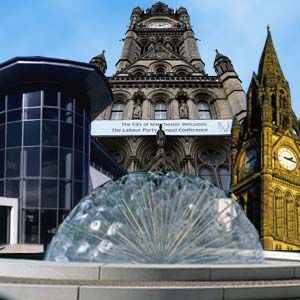As legend has it, the history of Manchester UK traces the city to the Roman general Agricola who built a fort north of present day Manchester city. This wooden fort was later rebuilt in stone. The Romans called it Mamuciam or breast shaped hill on account of its shape. It was in the 18th century that Manchester New Hampshire came into its own as a hub of industrial activity. The history of Manchester took a turn in 1761 when the Duke of Bridgewater began to bring cheap coal to Manchester. The city grew to become the centre of the cotton industry in Lancashire.
Textile factories sprung up in plenty. It's damp climate made it ideal for cotton mills to flourish. Manchester New Hampshire played a key role in the industrial revolution. Manchester in UK has the distinction of being the world's first industrial city.
The 20th century saw diversified industries such as biscuits, flour milling and other allied activities. The cotton industry suffered a rapid decline during the second half of the last century. Service industries such as education, finance and tourism have begun to flourish. New sectors such as biotechnology, chemicals and aerospace have also seen good progress in this region. Manchester became an important retail center with the opening of the Arndale Centre.













